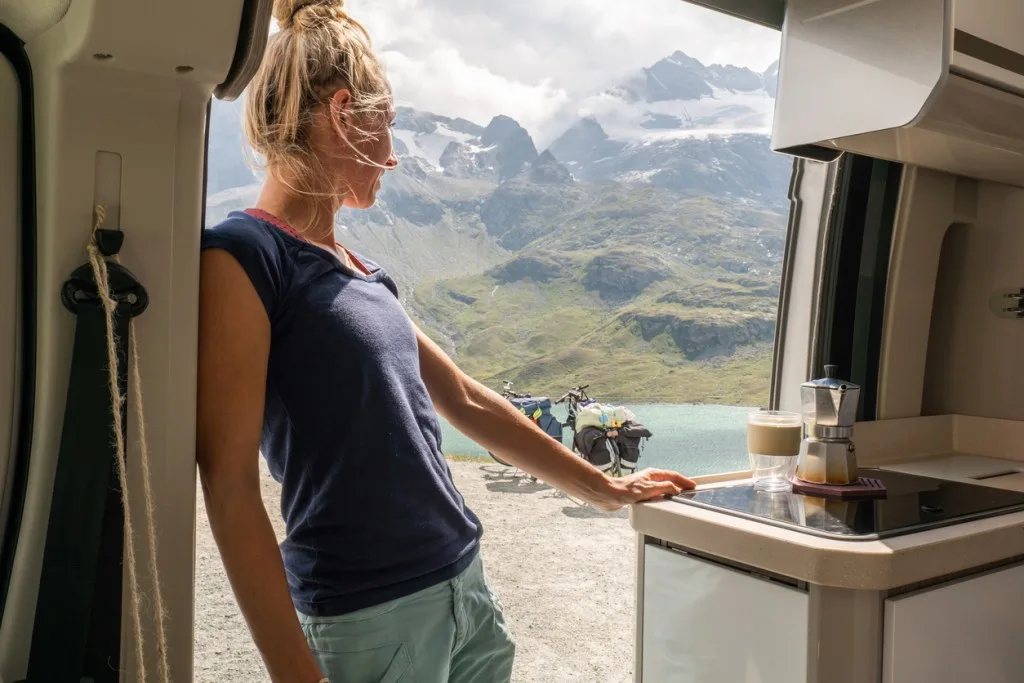The best thing about traveling in an RV is that you can take all the luxuries of home with you on the road. And, the worst thing about traveling in an RV is that you can take all the luxuries of home with you on the road. This is the dichotomy that people face when packing up the RV to hit the road.
Sure, you can bring all the things, but there are many mistakes because of this mindset that happen when packing an RV. There is also much more to consider than simply what you want to bring and if it will fit in the rig.
We’re here to point out 10 of the most common mistakes to avoid when packing an RV. Some of these mistakes are simply annoying if you make them, but others can be downright dangerous.
So let’s get started!
Packing Your RV Well Takes Practice
No matter how much you learn, there is really going to be no replacement for experience. Yes, these tips are going to give you a head start on some of the key mistakes to avoid when packing your RV, but learning how to pack well simply takes practice.
The more you do it, the better you’ll be.

10 Mistakes You Can Avoid When Packing Your RV
We could probably lay out a list of 100 mistakes to avoid when packing your RV, but that’s a lot to take in. That’s why we whittled it down to what we feel are the most common mistakes and the ones that will have the most impact on your travels.
#1 Bringing Too Many ‘Just In Case’ Items
This harkens back to our opening statement. Just because you can bring it, doesn’t mean you should. It’s easy to get caught in the trap of bringing extra things “just in case” you might need them.
When packing “just in case” items, think about the odds of you really needing them. Consider things like where you’re going, how long you’ll be gone, and what the weather forecast is for the areas you’ll be in.
#2 Overpacking Food
Overpacking food is easy to do. But the reality is unless you plan to go way off-grid for several weeks, you’re going to be able to replenish your supplies while traveling. There are grocery stores, convenience stores, and restaurants almost everywhere you can travel on paved roads. You’re not likely to lose access to obtaining food while traveling.
A good way to limit overpacking food is planning your meals and bringing only what you need.
#3 Packing Your RV Unevenly
Even for more experienced RVers, it’s common to forget about how we distribute items throughout the RV. This mostly applies to heavier items, but even the weight of lighter items quickly adds up.
Be conscious of how packing different items can weigh down a particular area of your RV. Putting too much weight on one side of the RV or the other can create a lopsided situation that could lead to swaying and/or tire blowouts.
Packing evenly also means being conscious of where you put heavier items from front to back. Generally, you want to try and distribute weight as evenly as possible, but with heavier items over or in front of the axles, which will help maintain stability.
Sketching out a rough storage map for your rig can help determine how to better distribute heavier items and make imbalances more obvious.
#4 Not Packing For Your Activities
When taking a version of your home on the road, don’t get dialed in solely on the things you’ll need while in the RV. Also, consider what activities you’ll be doing along the way or at your destination.
You might need certain clothes or equipment for activities like fishing, biking, paddle boarding, etc. And don’t forget items like sunscreen and insect repellant if they are applicable.
#5 Forgetting To Weigh Your RV
Why weigh your RV? Because not doing so can be a safety hazard.
All RVs have a limit to how much weight they can safely carry. If you don’t weigh your RV, you won’t know if you are within the safety specifications for your vehicle.
Failing to weigh your RV can lead to tire blowouts, compromising your rig’s frame, or other damage. Aside from damage, some of these issues, like a tire blowout, could also be dangerous for other drivers on the road.
Pro Tip: Here’s the consequence of not weighing your RV or camper.
#6 Not Including Items You Use Daily
While overpacking is a definite concern, underpacking can be as well. In all the excitement to get on the road, it’s easy to overlook some of the everyday items you might need.
Aside from food, don’t forget things like toiletries, medications, cleaning supplies, and other items that you use on a regular basis in your home that you’ll still need while on the road.
#7 Not Making an RV Packing List
One of the best ways to not over or under-pack your RV is by making a list and checking it twice.
Just like making a list of meals and food items, make a list of all the clothing you’ll need, medications, toiletries, activity-specific items, and emergency items like jumper cables and a first-aid kit. Don’t forget RV-specific items like water and sewer hoses, leveling blocks, etc. And, remember to include cleaning and household supplies, leisure time items such as books and games, utensils, and appliances on the list too.
Basically, include anything that you’ll want to have at the ready while traveling and at your destinations on the list. Hey, if a list works for Santa, why wouldn’t it work for you?
#8 Forgetting Snacks For The Drive
Even if your rig is a motorhome, it’s not safe to walk to the kitchen and prepare food while driving. It’s also a pain to have to stop all the time. So don’t forget to pack some snacks that you can keep up in the driving area while traveling.
Aside from the sheer enjoyment, snacks can help keep your energy levels up while driving.

#9 Not Securing Your Belongings Before You Leave
No matter how well your RV travels, any loose items are going to move around while you drive. A big mistake that people learn from the hard way is not securing their belongings.
This doesn’t only apply to items that are sitting out on the table or in the middle of the floor. Of course, pack those items away while traveling, but don’t forget about some of the things that are already packed away.
Though most cabinet doors and refrigerators have latches that are supposed to keep them closed, that doesn’t mean they’ll stay that way when you hit a big bump or travel a rough road. Make sure that all doors are completely closed and latched. For cabinet doors, you might also consider exterior locks that help keep them closed even if heavier items inside bang up against the door.
#10 Packing Breakables in Your RV
Breakables do not travel well. It’s as simple as that. If you must travel with wine or beer glasses, you need to employ extra measures to keep them from breaking while traveling. That also goes for items on the wall, like picture frames, which will need to be extra secure, not just hung from a nail.
Most breakables, like glassware, can be replaced with high-quality plastics that can be just as luxurious as their glass counterparts. Silicon items also hold up to heat and cold well and are nearly impossible to break.
Take It From Us
Packing an RV doesn’t sound like all that much fun, but when you’re done, there’s the excitement of hitting the road. It’s one of those necessary evils to get to where we want to go.
Hopefully, we’ve made it a little easier on you by pointing out some of the easier mistakes when it comes to packing an RV. After all, it’s better to learn from other people’s blunders than to have a terrible trip.
What’s the most important part of your RV packing routine?
Discover the Best Free Camping Across the USA
To be honest with you, we hate paying for camping. There are so many free campsites in America (with complete privacy).
You should give it a try!
As a matter of fact, these free campsites are yours. Every time you pay federal taxes, you’re contributing to these lands.
Become a FREE CAMPING INSIDER and join the 100,000 campers who love to score the best site!
We’ll send you the 50 Best Free Campsites in the USA (one per state). Access the list by submitting your email below: